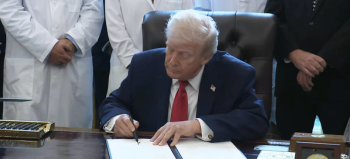
The Evolving Landscape of Cannabis Drug Testing in US Employment
Growing trend in drug testing: more employers are changing their drug testing policies around cannabis.
More employers in the United States are changing their drug testing requirements–including pre-hire and off-hour usage–around cannabis usage in employees. Employers are navigating environments where cannabis legalization is becoming more common, a need for qualified applicants is also increasing, and changing pre-hire testing policies seems to make sense as a solution (1).
“I started seeing that trend probably sometime last year, and it’s just increasing this year,” said Kathryn Russo of New York law firm Jackson Lewis (1). “It’s frustrating for them when they find someone they really like, that person tests positive for marijuana and they have to start over again.”
Since 2019, some places–including Atlanta, Baltimore, Philadelphia, and the District of Columbia–plus the states of Nevada, Washington, and Michigan, have abolished or changed their pre-employment screenings in regard to cannabis (2). Some other municipalities–including California, Connecticut, and New Jersey–have even limited testing for both pre-hire screening and for current employees (2).
Earlier this month, Michigan ended its policy requiring potential employees from completing a mandatory cannabis test; previously, a positive test result meant disqualification from being hired (4). Some state jobs, including in health care and law enforcement positions, will still require cannabis testing as part of pre-hire screening, but ultimately the argument was made to compare recreational cannabis use to alcohol use (3).
In May 2023, Washington State passed Senate Bill 5123, which makes it illegal for an employer to discriminate against potential employees based on cannabis use (4). The bill states, in part: “It is unlawful for an employer to discriminate against a person in the initial hiring for employment if the discrimination is based upon: (a) The person’s use of cannabis off the job and away from the workplace; or (b) An employer-required drug screening test that has found the person to have non-psychoactive cannabis metabolites in their hair, blood, urine, or other bodily fluids,” (4).
The Washington law takes effect in 2024 and excludes or addresses jobs where impairment could result in injury or death (2,4).
“If your employer wants to test you every week after you’re hired, they’re still able to do that,” explained the bill’s sponsor, Senator Karen Keiser (4). “This is simply opening the front door of getting into a job. Because too many people who see that they have to take a drug test to even apply, don’t even apply.”
Concerns still remain about adequate testing methods, as cannabis can remain in a person’s system even when consumed during non-work hours and does not necessarily indicate impairment (1).
References
- Abril, D.; Telford, T. Smoking weed after work? A growing number of employers don’t mind.
https://www.washingtonpost.com/technology/2023/07/17/marijuana-drug-test-weed-work/ (accessed Jul 24, 2023). - Norml. Washington becomes latest state to ban pre-employment tests for cannabis
https://norml.org/blog/2023/05/09/washington-becomes-latest-state-to-ban-pre-employment-tests-for-cannabis/ (accessed Jul 24, 2023). - Michigan no longer requiring marijuana testing for state jobs
https://www.wndu.com/2023/07/13/michigan-no-longer-requiring-marijuana-testing-state-jobs/ (accessed Jul 24, 2023). - Withycombe, C. Bill would keep wa employers from passing you over for a job just because you smoked pot
https://www.seattletimes.com/seattle-news/wa-senate-passes-bill-to-bar-hiring-discrimination-for-cannabis-use/ (accessed Jul 24, 2023).
Newsletter
Unlock the latest breakthroughs in cannabis science—subscribe now to get expert insights, research, and industry updates delivered to your inbox.




